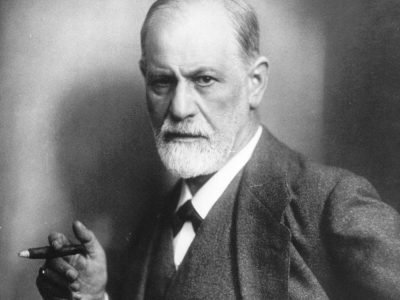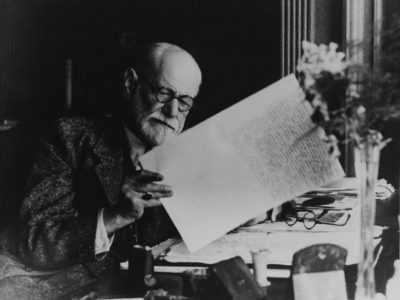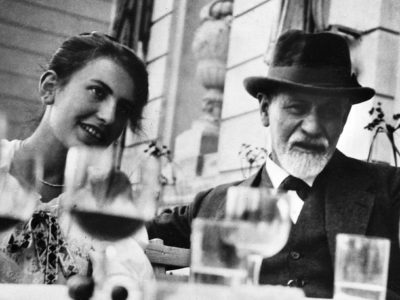Broadcast: 23 & 30 May, 2020 Duration: 6h
What can psychoanalysis offer to the on-going discussion about the state of the planet?
The Freud Museum held a conference on Ecological Madness in 1992 which was one of the first conferences to bring a psychoanalytic perspective to this global issue. Twenty-eight years later “ecological madness” has become a “climate emergency” and the impact on mental health is a major concern.
We are revisiting this pressing subject by inviting psychoanalysts, activists, authors and young poets to explore the psychological impact of the climate emergency in the consulting room and beyond. Many of us may feel helpless, anxious, guilty, angry, melancholic, and even fatigued from the constant flow of information; more and more people are said to be suffering from “climate anxiety”. In many parts of the world populations are not only suffering anxiety about the future but from the traumatic impact of environmental catastrophes in the present.
How we process our emotional responses is an important step to understanding the crisis and acting in a determined, effective and creative way. Can psychoanalysis help save the planet?
Programme:
DAY 1:
- Welcome
- Sally Weintrobe: Working Through Our Feelings About the Climate Crisis
- Joseph Dodds: Elemental Catastrophe – Ecopsychoanalysis, climate change and the viral uncanny of Covid-19
- Renée Lertzman: From Paralysis to Reparation: Accessing our Capacity to Care
- Plenary / Questions
DAY 2:
- Welcome
- David Morgan: Climate Change, Cognitive Dissonance, Human Hope and the Death Instinct
- Winners of the Young Poets’ challenge on climate anxiety
- Anouchka Grose: To Breed or Not To Breed
- Plenary / Questions
Abstracts
Sally Weintrobe
Working through our feelings about the climate crisis
The climate bubble is now bursting, leaving many people finding it hard to manage their feelings as they take in the extent of the damage already caused to our climate system. What can help us to recognise and work through our feelings about this threat to survival without resorting to further denial? How can we think proportionately about our responsibility? Sally Weintrobe addresses these questions, bringing in her ideas on Exceptionalism and the culture of un-care it promotes, a culture that alienates us from the part of us that cares about the effects of our actions.
Joseph Dodds
Elemental Catastrophe – Ecopsychoanalysis, climate change and the viral uncanny of Covid-19
Coronavirus embodies the uncanny ecology that threatens our destruction – but also offers a pause in the headlong rush of our ecocidal civilization, opening possibilities for renewal. This paper will seek to apply an ecopsychoanalytic perspective to the virus and the viral.
Renée Lertzman
From Paralysis to Reparation: Accessing our Capacity to Care
At this moment, humans are undergoing a collective awakening. The seismic ripples are activating new movements, from XR and young climate strikers, to corporate leadership. We now know enough to grasp the magnitude and scale of our planetary crisis, and the implications for all life, now and deep into the future. And yet, collectively we seem to swing from paralysis to mania. The tenor is either alarm and panic, or cheerleading solutions. None of these are wholly sufficient for a global response. What are the conditions that support our capacities to move into creative, integrative and reparative response? Where we can tolerate the anxiety, fear and shame that this crisis can bring up? We look to insights within psychoanalytic fields and beyond, to surface how we as a community can effectively bring about integrated, sane responses.
David Morgan
Climate Change, Cognitive Dissonance, Human Hope and the Death Instinct
“Knowledge comes with deaths release“ David Bowie ‘Quicksand’
At an international psychoanalytic conference, I’m aware of the cognitive dissonance that allows delegates to turn a blind eye to air travel whilst simultaneously attending a talk on the Climate Crisis.
I reflect that this is just part of being alive, our narcissism or western colonialism, hardening in the face of a crisis we have been ignoring, whilst increasingly using resources that cause it.
Like Freud when faced with the monstrosity of the World War, do we need his theory of the Death Instinct, with its longing to seek release from the complexities of life through dissolution? I conclude in a more hopeful fashion with some ideas about the post-anthropocene from Alain Badiou.
Anouchka Grose
To Breed or Not to Breed
With only a decade to turn the climate situation around, is it irresponsible to have a baby? And how might it be possible to respond to this question in psychoanalytic sessions? Is it possible to take the multiple threats posed by climate change seriously while still keeping open a space for people to make nuanced, subjective choices about their futures?
Freud Museum On Demand
When you rent one of our On Demand events, you will be able to watch it right away and stream the video anytime during the specified rental period.
Simply click the Rent button in the top right of the video. A pop-up window will open where you can sign up/log in to Vimeo. You will be given the option to pay by credit/debit card or PayPal. Once the payment has gone through you will be able to play the full video immediately.
You can watch the video straight from our page once you’ve paid or log in to your Vimeo account, where you can find all the videos that you have rented.
If you are a Member you can apply your promo code when you enter your billing info, for 20% discount.
More details on watching your purchased videos can be found here.


